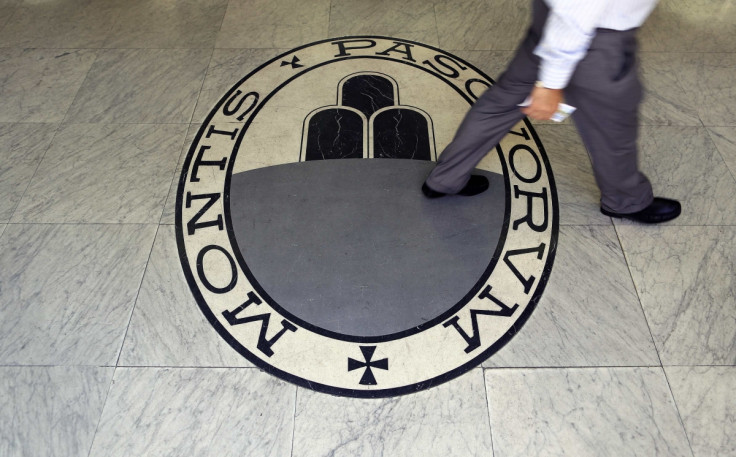Italian bank Monte dei Paschi di Siena's bailout could take up to three months
Italian government set to implement €20bn rescue package as lender fails to raise €5bn needed to stay afloat.

Shares in Banca Monte dei Paschi di Siena (MPS) gained ground on Thursday (22 December), amid reports the Italian government could complete a bailout of the lender within two or three months.
MPS, Italy's third-largest bank, is understood to have failed in a last-minute attempt to raise €5bn before the end of the year to avoid being nationalised. However, at the time of writing, MPS, whose share price has fallen by more than 80% in 2016, had raised just over €2bn and a state bailout now looks inevitable.
According to Italian newspaper Il Sole 24 ore, the Italian government could step in to help the bank as soon as Thursday, by allowing the world's oldest-surviving lender to tap into state guarantees to raise fresh funds, should it run out of liquidity.
On Wednesday, the Tuscan bank warned it might run out of funds by April 2017, using €11bn (£9.2bn) worth of financial assets by then – and it could use up to €15bn of funds by May, despite previously stating it had sufficient funds to stay afloat for 11 months.
The second step of the bailout, would see the government utilise the €20bn rescue fund, which was approved by parliament on Wednesday, to recapitalise Italy's weakest banks.
Paolo Gentiloni, who succeeded fellow Democratic Party member Matteo Renzi as Italian Prime Minister earlier this month, vowed the government would not let MPS fail. However, Rome has desperately tried to avoid pumping funds into MPS for fears of political ramifications.
Under new EU regulations, a state bailout would in all likelihood lead to private investors having to shoulder a significant hit, a prospect Rome wants to avoid given the growing Euro-scepticism in the country.
"Given the level of investment by Italian households in Monte Paschi, it makes sense for politicians to make the bank part of their agenda," said Naeem Aslam, chief market analyst at Think Markets UK. "Having said that and looking at the level of investment historically, the amount invested by households in Italian banks has dropped nearly 52% from its peak which was in 2012."
Earlier this month, the bank had asked until 20 January 2017 to raise the money it needs to avoid a bailout. However, the request was turned down by the European Central Bank (ECB), on the grounds that a delay would achieve little.
However, one of the plan's chief backers, Quaestio, which manages the government-orchestrated bailout fund Altante, has expressed concerns over the terms of the loan, which looks to have jeopardised any last-ditch effort to raise funds.
© Copyright IBTimes 2025. All rights reserved.






















